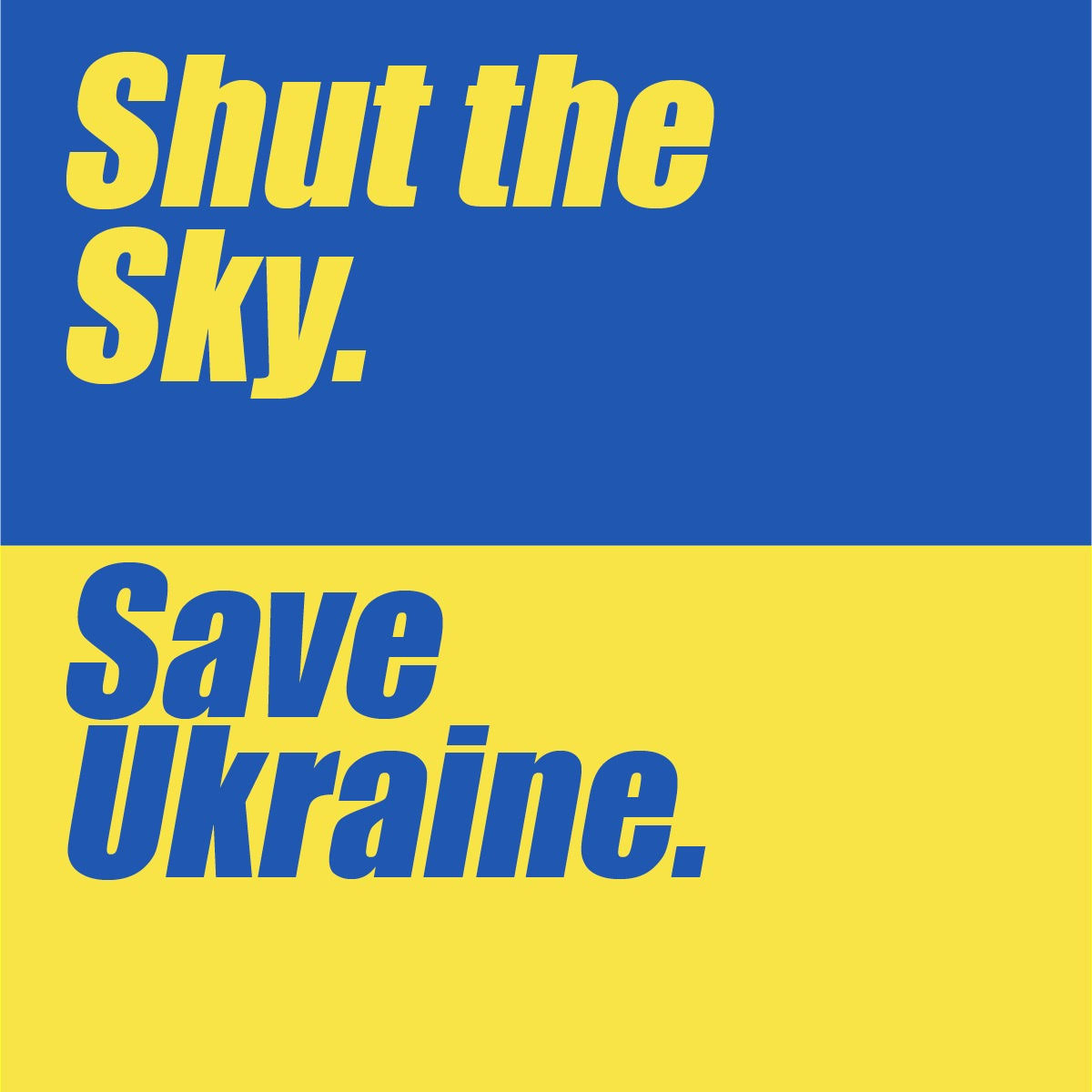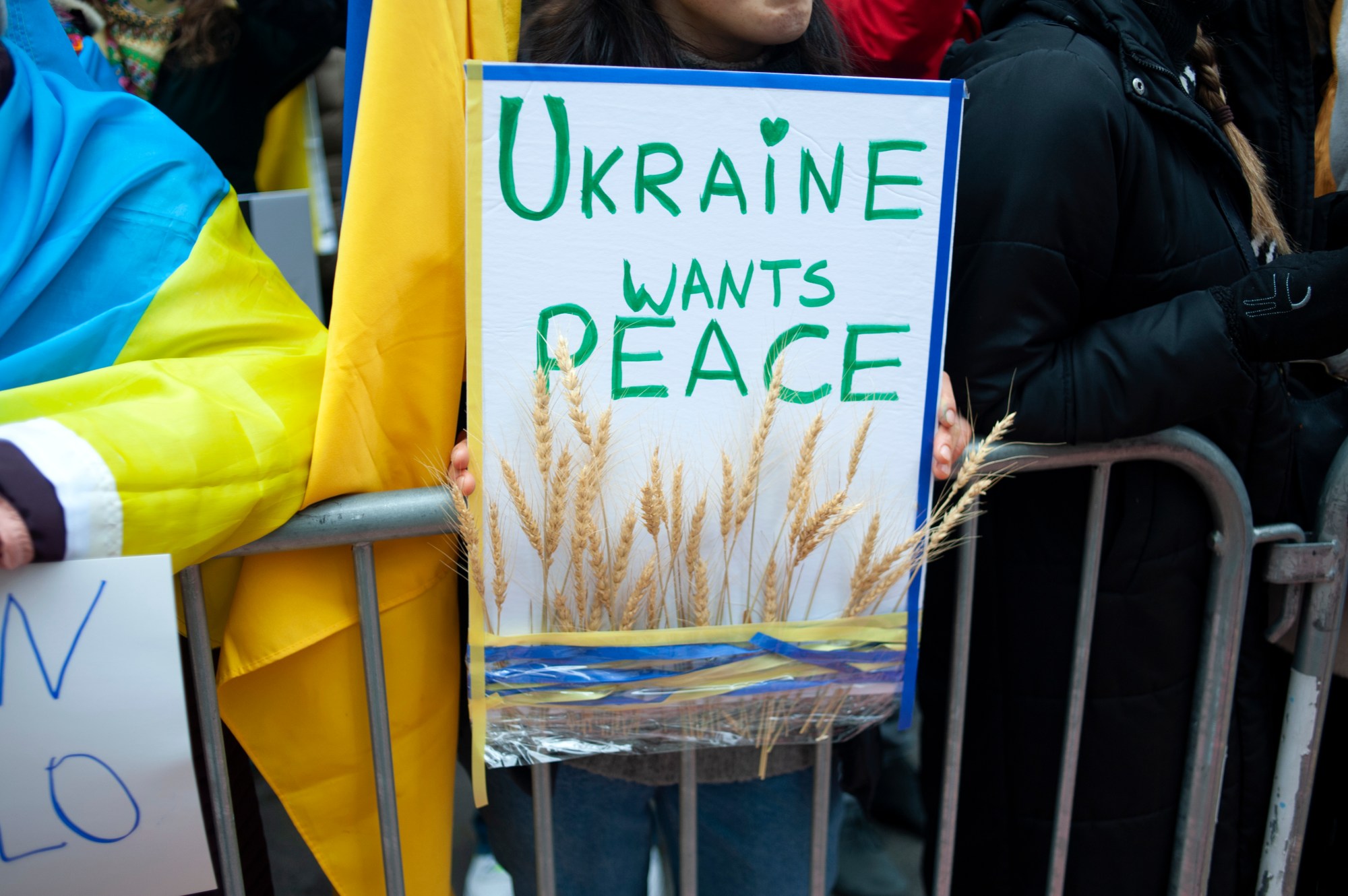The invasion of Ukraine by Russian forces under President Vladimir Putin threatens the lives of countless Ukrainians and holds the potential to shake the geopolitical bedrock of western democracy. It can be hard to wrap your head around the events themselves, particularly when everything is moving so fast. The current situation is the culmination of a war that started in 2014 (though the subjugation of Ukraine under Soviet rule stretches back centuries) over separatist regions in Ukraine’s east, and has, before this week’s events, killed over 50,000 and displaced more than 1.5 million people.
According to Ukrainian statistics, 137 Ukrainian soldiers and civilians were killed in yesterday’s conflict alone, while more than 100,000 people were displaced, most of them fleeing west to escape the incoming soldiers, seeking refuge in nearby countries.
To watch it unfold from afar can be distressing. But there are things you can do to help those displaced by the crisis, to avoid spreading disinformation, and to force your government to take meaningful action.
Donate
Women, children, the wounded and the poor in Ukraine are most desperately in need of financial support right now. And while the country’s infrastructure is affected by ongoing bombings and its digital infrastructure a regular victim of cyberattacks, many organisations — both within and outside the country itself — accept donations.
The Women’s Federation for World Peace has created a fundraiser for those looking to help displaced Ukrainian refugees get a headstart in their new home. Sunflower of Peace is raising money to create medical backpacks for doctors and paramedics on the frontlines. Project CURE and UA Hospitals are raising funds to send containers of supplies into Ukrainian hospitals. United Help is focused on securing medical supplies, humanitarian aid and supporting wounded soldiers and civilians. The Czech organisation People in Need is fundraising for those on the ground, providing them with food and medical packages. Nova Ukraine is providing humanitarian aid to those in the country too.
Amplify verified voices on the ground
Be wary of what you are watching and engaging with on social media. Misinformation during times of crisis is rife, and so before resharing anything, check the source is verified and trustworthy. The independently fundraised, English language Kyiv Independent is an editorially independent news platform, with a rolling section of updates on their site and Twitter. (You can donate to their GoFundMe here.)
Other journalists to follow include those based in Kyiv right now, including the BBC’s Ukraine correspondent Myroslava Petsa, The New York Times’ Michael Schwirtz, and Isabelle Khurshudyan of The Washington Post.
For progress from the Ukrainian side, President Volodymyr Zelenskyy and Minister of Foreign Affairs Dmytro Kuleba are tweeting throughout the conflict in English.

Pressure your government to Shut the Sky
One of the key measures suggested to help quell the risk of escalation and cut off Russia financially is for European nations to ban Russia from entering their airspace. The editor-in-chief and founder of the fashion magazine 1 Granary, Olya Kuryshchuk, a London-based Ukrainian native with family in Kyiv, is launching a campaign to do just that, asking us to band together, encourage protest, and take the following action: shut our flight zones, apply harder sanctions, and cut Russia from SWIFT, a cooperative that facilitates global financial transfers between countries. “This is all of us uniting Europe back together,” she says of the campaign, which bears the slogan ‘Shut the sky, save Ukraine’. “It will secure your peace and it might help save my own family.”
Protest
Since Putin’s invasion of Ukraine, a number of sanctions have been placed upon Russia in an effort to force the president to cede control in the country. These moves, while encouraging, represent a small share of the work required to ensure Ukraine remains stable. To show solidarity, plan or seek out peaceful protests in your country.
Many are scheduled to take place in the coming days, with a comprehensive list of them featured on this website. If you can’t find anything in your area, check Twitter to see if any may be in the works, or try and organise one yourself. Tips on how to do so by the UK human rights charity Liberty can be found here; if you live elsewhere, check with a local organisation who can ensure you can hold one effectively and legally.
As we speak, Russian citizens across the country are protesting in the streets against Putin’s invasion of Ukraine themselves, breaking the law and getting arrested. It is worth remembering the victims here are never those who choose to instigate this. On both sides, those displaced and sent to defend their country against their will in a war neither of them asked for will always be the ones who eventually wind up worse off, displaced, incarcerated or dead as a consequence. They are the casualties in this conflict.
